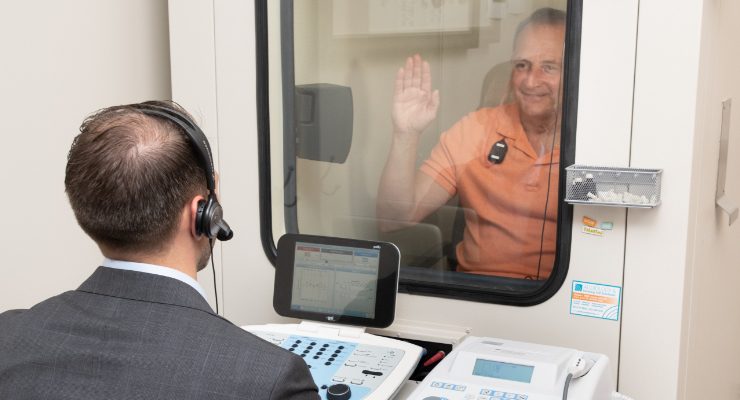
Hearing loss is one of the most common chronic health conditions affecting older adults today. Individuals with hearing loss more often experience symptoms like depression and some social isolation. Evidence has shown that older adults with hearing loss have developed decreased cognitive performance.
Mild cognitive impairment (also known as MCI) is the stage between the expected decline of normal aging and the more serious decline of dementia. It can include problems with memory, thinking, language, and judgment.
A new study has shown that older adults wearing hearing aids has reduced cognitive decline that has been associated with hearing loss. This may motivate older adults with hearing loss to finally seek professional care. It followed 3,670 adults, age 65 and older over a 25-year period.
This study had compared the path of cognitive decline among older adults who were using hearing aids to those who were not. Improved communication was made possible by hearing aids and had resulted in an improved mood, more social interactions, and increased cognitive abilities. The study concluded that older adults who do not wear hearing aids to help with their hearing loss is the most probable reason for the decreased cognitive decline.
- Study Measurements: hearing loss was determined using a questionnaire assessing self-reported hearing loss.
- 137 subjects reported major hearing loss.
- 1,139 reported moderate problems (some difficulty following a conversation when several people were talking simultaneously or in a noisy background)
- 2,394 reported no hearing trouble.
- Cognitive decline was measured using the Mini-Mental State Examination (MMSE), which as administered during follow-up visits over a span of 25 years.
- Results: Self-reported hearing loss was shown to be significantly associated with lower baseline MMSE scores and greater decline during the 25-year follow-up period (regardless of age, sex, and education).
- A difference in the rate of change in MMSE score over the 25-year follow-up was detected between participants with hearing loss not using hearing aids.
- In contrast, participants with hearing loss using a hearing aid had no difference in cognitive decline.
- Conclusion: Self-reported hearing loss is associated with increased cognitive decline in older adults and hearing aid use reduces such decline.
Hearing loss is largely underdiagnosed and therefore undertreated. Almost two-thirds of older adults with some level of hearing impairment, do not use hearing aids. Hearing aid use has shown to be associated with lower rates of cognitive decline in individuals with hearing loss.
If you or someone you love is living with untreated hearing loss, contact our locations in Clifton, Paramus, Pompton Lakes, Mahwah or Pompton Plains, today!



